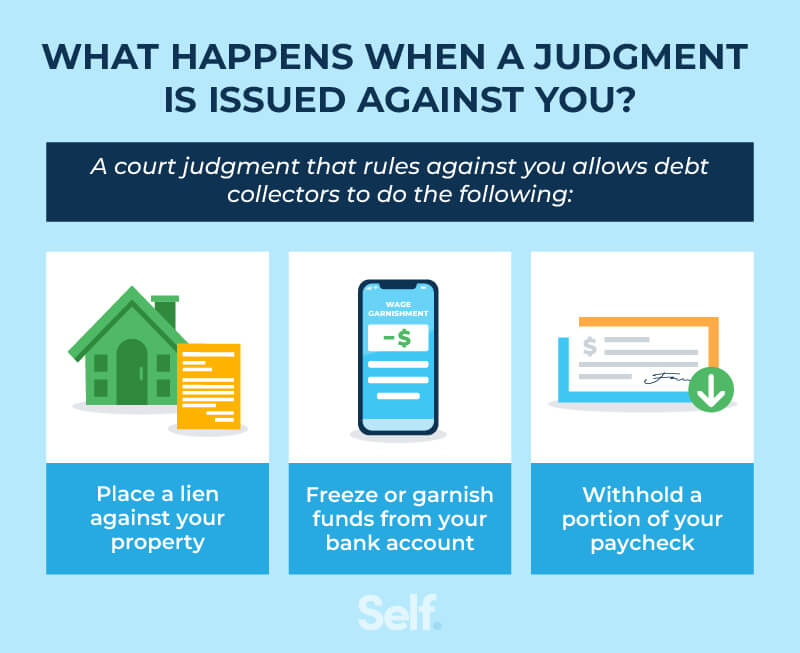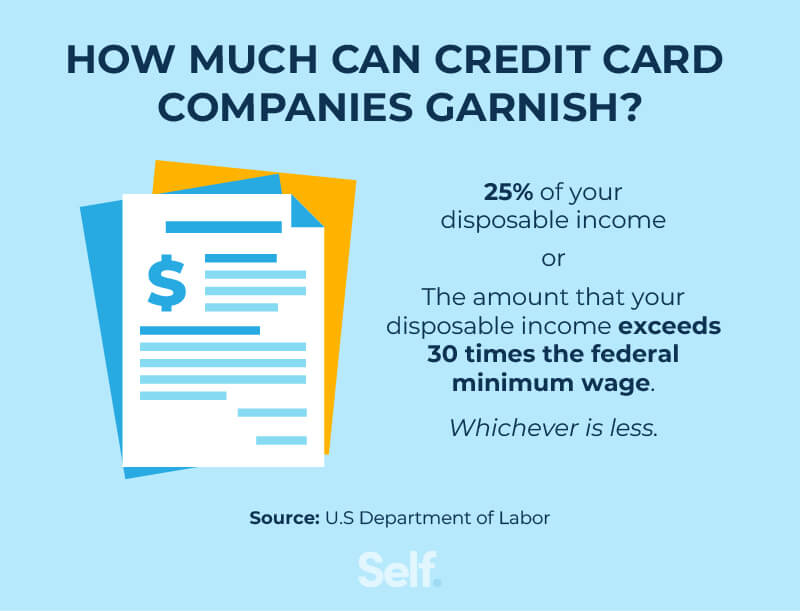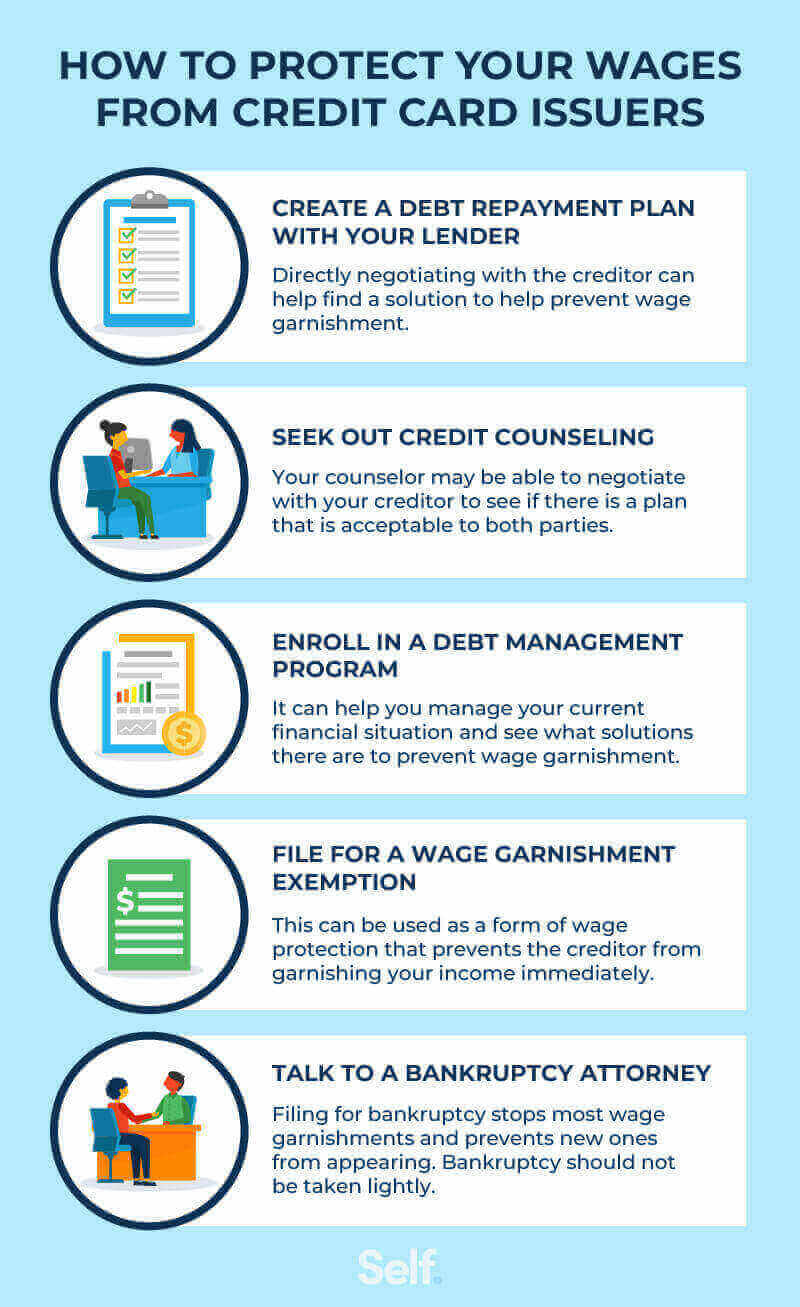Can Credit Card Companies Garnish Your Wages?
Published on: 08/29/2022
As a last resort, credit card companies can garnish your wages to collect on your credit card debt. Credit card companies garnish wages by securing a court order to compel your employer to withhold a portion of your salary to pay off your debt.
If you’re having trouble with your credit card debt or are facing debt collection, you may be wondering how the garnishment process might affect you. This post helps you understand what credit card companies can and cannot do in terms of wage garnishment and provides you with options to help avoid garnishment in the first place.
When can credit card companies garnish your wages?
Credit card companies must secure a court order before they can garnish your wages. To obtain the court order, the credit card company must sue you in court. If you fail to respond to the summons sent by the court, the creditor receives a judgment, or court order, which may allow them to:[1]
- Place a lien against your property.
- Freeze all or part of the funds in your bank account.
- Garnish funds from your bank account.
- Garnish your wages.[2]
If the court grants the credit card company permission to garnish your wages, your employer is obligated to set aside the amount of your salary that the court has ordered until the debt is paid in full.[2]

Can you get fired for wage garnishment?
The Consumer Credit Protection Act (CCPA) prohibits employers from firing employees whose wages are being garnished for one debt, but different states have different levels of protection in the case of multiple garnishments.[3] Becoming familiar with your state’s wage garnishment laws helps you know your rights if ever faced with garnishment.
State laws protect you from wage garnishment in the following states unless the garnishment is for tax-related debt owed to the IRS, child support, student loans and court-ordered fines:
What wages cannot be garnished?
The following types of disposable earnings cannot be garnished unless the payments are made in exchange for personal services rendered:
- Commissions
- Attendance, safety, or cash service awards
- Referral and sign-on bonus
- Performance bonuses
- Severance pay
- Termination pay
- Payment for working during a holiday
- Retroactive merit increases
- Incentive payments[3]
Most federal benefits are exempt from garnishment except for payment of delinquent taxes, alimony, child support or student loans. Some examples of those benefits include:
- Social Security benefits (if paid through direct deposit)
- Supplemental Security Income benefits (if paid through direct deposit)
- Veterans benefits (if paid through direct deposit)
- Federal student aid
- Military annuities and survivors’ benefits
- Benefits from the Office of Personnel Management
- Railroad retirement benefits
- Federal emergency disaster assistance[5]
How much can credit companies garnish?
Federal law limits garnishment orders from credit card companies to 25% of disposable earnings or the amount by which your disposable income exceeds 30 times the federal minimum wage, whichever is lower. Disposable earnings mean your total pay minus required deductions like taxes and Social Security.

Say your disposable income is $1,000 every two weeks. 25% of this income is $250. The federal minimum wage is $7.25, so thirty times the federal minimum wage is $217.50. Your disposable income exceeds thirty times the federal minimum wage by $782.50 ($1,000 - $217.50). Therefore, credit card companies can garnish a maximum of $250 per paycheck.
When state laws on garnishment differ from federal laws, the garnishment follows whichever law results in a lower amount.[3]
How to protect your wages from garnishment

If you’re struggling with your credit card bills, you can try various ways to protect your wages from garnishment. Try using the ideas in the following sections to find a solution with your creditors that avoids garnishment.
Discuss hardship programs with your lender
Check with your lender and see if you qualify for any hardship plans. If you do, your lender may be open to negotiating temporarily reduced payments, reduced APR, a lower minimum payment, waived late fees, or other terms. Keep in mind that you still owe the debt and hardship programs typically last for a fixed amount of time.
If your creditors have already written off your debt as a loss, they may be willing to settle for less than you owe. Because going through the steps to garnish wages can be expensive for your creditors, they may be willing to recover some of what you owe rather than none at all.
Seek out credit counseling
Credit counseling offers many ways to meet your unique financial needs. From budgeting help and financial counseling to discovering ways to manage your debt, look for an accredited agency when considering credit counseling.
The National Foundation for Credit Counseling (NFCC) offers a way to connect to accredited professionals who can offer expert advice when dealing with your debt. You not only can find solutions to manage your debt, but you can also find a path forward to creating good financial habits to rebuild your credit.
Enroll in a debt management program
You may want to consider enrolling in a debt management plan (DMP). Similar to debt consolidation, you make payments to one source to repay your credit card debt, but you don’t take out a loan with this option.
With a DMP, you work with a credit counselor who sets up your plan. Then you make a single, agreed-upon payment each month that gets dispersed to your creditors. Enrolling in a DMP offers a strategic plan to repay credit card debt and connects you to credit counselors who can help you both manage your debt and give you expert advice for your financial future.[6]
Consolidate your debt
Debt consolidation provides a way for you to pay off large amounts owed to credit card companies. This strategy involves taking out a loan to pay off your debt. Instead of paying several creditors, you pay just one monthly installment. This works best when your debt consists of more than one lender.
Depending on your credit score, you may save money by paying a lower interest rate than what you were paying through your credit card. You may even have lower monthly payments.
File for a wage garnishment exemption
Although the federal law already limits how much of your disposable income can be taken through wage garnishment, you may discover that your state has lower limits for wage garnishment or exemptions for hardship. Because the federal law allows the lower garnishment limit to be enforced, consult an attorney to understand how your state’s laws affect your situation and see if you can file an exemption, which may bring you some relief.[3]
Talk to a bankruptcy attorney
If every other debt settlement, management, and consolidation method fails, you may want to seek out a law firm and speak with a bankruptcy attorney about filing for bankruptcy. The legal process of bankruptcy may discharge or cancel most of your debt. Bankruptcy can stay on your credit report for up to 10 years, so you should give it serious consideration before you take this route.
Ways to manage your debt
If you feel overwhelmed with credit card debt, you can either find strategies to pay it off or reach out to your creditors to create a payment plan, but keeping your personal finances healthy may require help. Stick with a method that suits your financial situation and stay on track so that you can reach your financial goals.
Sources
- Consumer Financial Protection Bureau. “What should I do if a creditor or debt collector sues me?” https://www.consumerfinance.gov/ask-cfpb/what-should-i-do-if-a-creditor-or-debt-collector-sues-me-en-334/. Accessed April 22, 2022.
- Consumer Financial Protection Bureau. “Can a debt collector garnish my bank account or my wages?” https://www.consumerfinance.gov/ask-cfpb/can-a-debt-collector-garnish-my-bank-account-or-my-wages-en-1439/. Accessed April 22, 2022.
- U.S. Department of Labor. “Fact Sheet #30: The Federal Wage Garnishment Law, Consumer Credit Protection Act’s Title III (CCPA)” https://www.dol.gov/sites/dolgov/files/WHD/legacy/files/whdfs30.pdf. Accessed April 22, 2022.
- National Consumer Law Center. “Protecting Wages, Benefits, and Bank Accounts from Judgment Creditors,” https://library.nclc.org/protecting-wages-benefits-and-bank-accounts-judgment-creditors. Accessed August 8, 2022.
- Federal Trade Commission Consumer Advice. “Debt Collection FAQs” https://consumer.ftc.gov/articles/debt-collection-faqs. Accessed April 22, 2022.
- Experian. “A Debt Management Plan: Is It Right for You?” https://www.experian.com/blogs/ask-experian/credit-education/debt-management-plan-is-it-right-for-you/. Accessed August 8, 2022.
About the author
Ana Gonzalez-Ribeiro, MBA, AFC® is an Accredited Financial Counselor® and a Bilingual Personal Finance Writer and Educator dedicated to helping populations that need financial literacy and counseling. Her informative articles have been published in various news outlets and websites including Huffington Post, Fidelity, Fox Business News, MSN and Yahoo Finance. She also founded the personal financial and motivational site www.AcetheJourney.com and translated into Spanish the book, Financial Advice for Blue Collar America by Kathryn B. Hauer, CFP. Ana teaches Spanish or English personal finance courses on behalf of the W!SE (Working In Support of Education) program has taught workshops for nonprofits in NYC.
Editorial policy
Our goal at Self is to provide readers with current and unbiased information on credit, financial health, and related topics. This content is based on research and other related articles from trusted sources. All content at Self is written by experienced contributors in the finance industry and reviewed by an accredited person(s).
